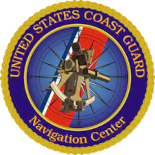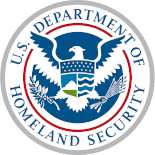*** Mariner’s Safety Endangered When VHF Radio Distress Alerts by Digital Selective Calling (DSC) Lack Location and Identification Information
As the Coast Guard’s new marine radio network, Rescue 21, becomes operational throughout the U.S., rescue centers will have the ability to receive instant distress alerts from commonly used DSC-capable VHF marine radios; however, approximately 90% of VHF DSC distress alerts received by the Coast Guard do not contain position information, and approximately 60% do not contain a registered identity. The Coast Guard cannot effectively respond to a DSC distress alert sent from such a radio. As a result, search and rescue efforts may normally be suspended when:
- no communications with the distressed vessel can be established;
- no further information or means of contacting the vessel can be obtained from other sources; and,
- no position information is known.
Please see the USCG Marine Safety Alert on this topic.
Instructions for interconnecting the GPS receiver or chart plotter to the VHF radio may be found in the installation manual for both devices. Also available:
- A water resistant trailer hitch connector (will open a new browser window), available from most auto parts stores, may provide a means for disconnecting and removing the radio when frequent removal is necessary.
- A wiring guide (PDF; will open a new browser window) describing how popular GPS receivers and plotters can be properly interconnected to your VHF marine radio. You may also view this same wiring guide in an Excel spreadsheet.
Also, information MMSI is available.
DSC TESTING NOTICES
DSC-equipped radios purchased after March 2011 must have a test calling capability. Transmitting a test call using Safety Priority, not Routine Priority to the identity 003669999 will trigger a reply from any USCG Rescue 21 station within range. If your radio does not have a test call capability, you can test it by sending a DSC call to another DSC-equipped radio.
The radio’s display will indicate if the GPS receiver has been properly connected.
*** DSC-Equipped Marine Radios Must Meet More Rigorous Technical Standards Beginning March 25, 2011
Beginning March 25th, 2011, the Federal Communications Commission will prohibit the manufacture, importation, sale and installation of fixed mounted (non-portable) digital selective calling (DSC) equipped marine radios that do not meet the requirements of International Telecommunications Union (ITU-R) Recommendation M.493-11 or higher, and in the case of Class D VHF DSC equipment only, International Electrotechnical Commission (IEC) International Standard 62238. Therefore, after March 25, 2011, radios built to RTCM Standard SC-101 can no longer be manufactured, imported, sold or installed; however, previously-installed radios meeting the older standard may continue to be used. See the USCG Special Notice.***
*** Special Notice Regarding U.S. Coast Guard MARINE SAFETY ALERT - AUTOMATIC CHANNEL SWITCHING ON DSC-EQUIPPED RADIOS
Certain models of Digital Selective Calling (DSC) equipped VHF maritime radios will automatically switch from a working channel to Channel 16 upon receipt of a DSC distress alert, distress alert acknowledgment and other DSC calls in which a channel number has been designated. A navigation safety hazard may consequently occur if the radio is being used to maintain a listening watch or to communicate on the designated bridge-to-bridge radiotelephone or vessel traffic services (VTS) monitoring channel. You may view updated information including a listing of manufacturers of radios believed to be affected by this Safety Alert. You may view the alert in PDF. (Note, this alert contains a link to an older, depricated Digital Selective Calling page. Please ignore this link.)
*** Manufacturer, Importation, Sale or Installation of RTCM SC101 Radios Prohibited On March 25, 2011
The Federal Communications Commission has prohibited the manufacturer, importation, sale or installation of non-portable DSC-equipped radios that do not meet either ITU-R Rec. M.493-11 or IEC 62238 Class D standards effective March 25, 2011. This regulation effectively bans the sale of radios built to the RTCM SC101 standard on that date. A similar prohibition will apply to portable radios effective March 25, 2015. See 47 CFR 80.225(a)(4).
Last updated: 25 February 2014


